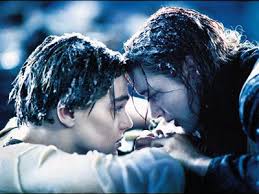Yesterday I discussed how to avoid sagging middles by making your scenes multipurpose. But that's not the only thing to worry about. Ultimately, the sagging middle is about pacing. In the beginning of our book, we're usually very aware of pacing--don't info dump, jump right in (en medias res), hook your reader immediately. But then when we hit that second act, we often forget all those components and start shoving everything in that we really wanted to put in the first act, but didn't because of the pacing "rules". If you do that, however, you're going to drag your middle down.
I'm sure you've heard this before, but every page should have conflict on it, every darn one. And that includes those in the middle. And I know many of us can think of books we've read that this is not the case, where the pacing was more languid and subtle and were still great books--but that is the exception, not the rule.
Author Anne Mimi suggests that those books with the slower pacing often fall into one of the following categories:
1. The book is by an already established author who can get away with more.
2. The author is dead.
3. The agent picked up the author over ten years ago or the book was published over ten years ago.
4. The book was first published outside the U.S. (Brits are apparently more patient with pacing).
5. The book is non-fiction.
So, in other words, to give our books the best chance, we need to recognize that we live in a fast-paced, short attention-spanned, movie/internet/iphone/immediate gratification culture. So even if you manage to hook your reader with a terrific beginning, it doesn't mean the person won't put your book down when things slow in the middle. You have to make them want to turn every page. And every chapter should end with a hook that leaves them wanting more. If you can't hook the chapter end, then the scene probably needs better pacing and conflict.
So what happens when you realize your middle is, in fact, drooping? First, you may want to look at why this could be the case. Julie Moffett lists the following common culprits for the problem.
1. You revealed too much in the first part of the book, whether that be about your characters or the plot
2. Secondary or subplots have knocked you off course or run away with the story
3. The conflict (internal/external/sexual) is nonexistent or weak or there is no real action
4. You don't know what comes next so you're meandering around aimlessly
5. The story is boring you or you realize you have major plot problems that are making the story illogical or unrealistic
Alright, so once you pick out why you're middle is dragging, what are some things you can do? Camy Tang offers these suggestions:
1. Strive for constant change with increasing tension/difficulty--Picture your character driving down a race track, it can't be a smooth, straight road ahead. Throw a speed bump in her way, then when she deals with that, put something in front of her that is even more difficult to manage (a herd of cows perhaps), and just when she's maneuvered around the bovine, have the wheels fall off the car.
2. Give the character new information in small pieces--a hint there, a clue here, a fleeting expression across her friend's face that makes the MC wonder if the friend's being honest, etc. And make getting those clues hard fought. Don't just have the clues fall in their lap, make them work for it. Give your reader just enough to want more, but also let them feel like he/she is closer to figuring out what's going to happen.
3. Keep your character's eyes on the prize--You cannot lose sight of your characters' goals. Every scene they enter needs to be striving toward whatever goal they are seeking. Like DawnB said in the comments yesterday. Your characters should enter each scene with a purpose--what are they trying to accomplish in this particular scene.
4. Don't be repetitive--Do not have scenes rehash old information. Each scene needs to add something new. And this also goes for having scenes that "feel" too similar in setting, content, tone, etc. If your hero and heroine are always having "let's figure out this mystery" conversations over a meal, your reader is going to get bored. Change it up.
And one last tip from author Stacia Kane: End your middle (or second act) with a bang. At the conclusion of the middle, the reader should be unsure of what's going to happen and if they are going to get an ending they want. Pay attention when reading books, this "end of the middle" or black moment is usually easy to pick out. In romance, this is often when the characters have a sex scene (truly ending with a bang, *snort*) that makes things worse, or the bad guy in a thriller looks like he's going to elude your hero. Basically, the worst thing that could happen--happens.
Alright, I hope now you can dive into those middles and make them svelte and strong. Now if these tips would only help with my other sagging middle--the one from all that eggnog and pecan pie.
So are you overwhelmed at the thought of conflict on every page (like I am)? Do you have trouble getting each chapter to end on a hook? Which books have you read that have been slow-paced but worked--do they fit those criteria above?
**Today's Theme Song**




